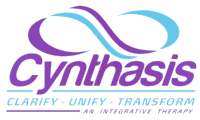 Magic happened at Inti Wasi, Costa Rica. We came together knowing very little about one another yet had much in common. We were a group of therapists who wanted to heal raw pain, original wounds, and ancestral patterns, and awaken to peace. We could not have done it alone. Healing happens in healthy communities. We offered love, warmth and tissues as transformation took place. We were supported by all the elements, and had fire ceremonies, sound baths and the ocean. Words can not describe it. Experience and knowing we came feeling isolated and left feeling a deep
Magic happened at Inti Wasi, Costa Rica. We came together knowing very little about one another yet had much in common. We were a group of therapists who wanted to heal raw pain, original wounds, and ancestral patterns, and awaken to peace. We could not have done it alone. Healing happens in healthy communities. We offered love, warmth and tissues as transformation took place. We were supported by all the elements, and had fire ceremonies, sound baths and the ocean. Words can not describe it. Experience and knowing we came feeling isolated and left feeling a deep connection speaks volumes.
connection speaks volumes.
Healing for therapists is key for attunement, connection and creativity. Many of us come to the profession to heal and find ourselves seeking CEs to help our clients. But how about us? How common is it to put our needs last? Is it a habit? These are questions to ask yourself whether you are a therapist, coach, healing professional, or working in the service industry. Serving others is often a heart-felt calling. We need to keep replenishing our giving supply.
 Carl Rogers and his emphasis on therapist self-awareness has influenced research on how therapists’ personal growth positively affects the therapeutic relationship. Other research shows a burned-out therapist takes the risk of harming themselves and those they serve. At the point of burnout, whether you know it or not, it’s hard to attune or “hear” clients and attune to their pain. (Cochran & Cochran, 2021). In another study, higher-quality supervision was shown to help engagement (Johnson et al., 2020).
Carl Rogers and his emphasis on therapist self-awareness has influenced research on how therapists’ personal growth positively affects the therapeutic relationship. Other research shows a burned-out therapist takes the risk of harming themselves and those they serve. At the point of burnout, whether you know it or not, it’s hard to attune or “hear” clients and attune to their pain. (Cochran & Cochran, 2021). In another study, higher-quality supervision was shown to help engagement (Johnson et al., 2020).
I remember the longing to be a therapist from the first time I saw a therapist but once I hit college I realized I needed to work on myself. Life is a journey personally and professionally.
References:
The Power of Vulnerability
Brené Brown
Why Mental Health Workers Need Therapy, too.
